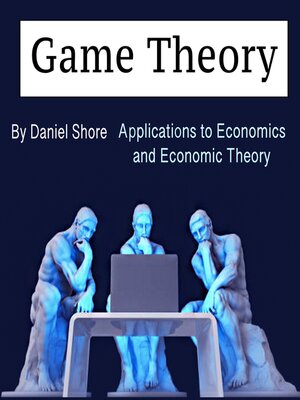
Sign up to save your library
With an OverDrive account, you can save your favorite libraries for at-a-glance information about availability. Find out more about OverDrive accounts.
Find this title in Libby, the library reading app by OverDrive.



Search for a digital library with this title
Title found at these libraries:
| Library Name | Distance |
|---|---|
| Loading... |
Here are some fundamental concepts and terms in game theory and economics:
Game Theory: A branch of mathematics and economics that studies how people make decisions in strategic situations, where the outcome of one person's decision depends on the decisions of others.
Players: Individuals, groups, or entities making decisions in a game. Each player typically has a set of possible actions they can take.
Strategy: A plan of action for a player that specifies what they will do in each possible situation or contingency in the game.
Payoff: The outcome or result that a player receives as a consequence of their actions and the actions of others in the game. Payoffs are often represented in terms of utility, profits, or some other measurable outcome.
Nash Equilibrium: A concept in game theory where no player has an incentive to unilaterally change their strategy, given the strategies chosen by the other players. In other words, each player's strategy is optimal given the strategies chosen by the other players.







